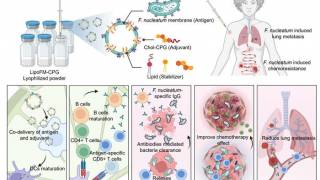Dispelling HPV Vaccine Myths With Facts and Science

An editorial article published by the Society of Behavioral Medicine confronts 7 myths with facts and science about the cancer prevention vaccine Gardasil 9.
In this August 27, 2019, editorial, Claire C. Conley, Ph.D.; Postdoctoral Fellow, H. Lee Moffitt Cancer Center, and Monica L. Kasting, Ph.D.; Assistant Professor, Purdue University say ‘Despite the numerous benefits, several misconceptions about the human papillomavirus (HPV) vaccine still persist.’
‘It’s important to know the facts about this cancer-prevention vaccine.’
‘The Gardasil 9 vaccine is safe, effective, and protects against many strains of HPV, which is the most common sexually transmitted infection and a cause of several cancers' said this editorial.
The Gardasil 9 vaccine consists of proteins for the 6, 11, 16, 18, 31, 33, 45, 52, and 58 HPV types.
Inserted below are the ‘7 common myths about the HPV vaccine and the science that busts those myths.’
1. MYTH: HPV vaccination is not safe.
- FACT: The HPV vaccine is safe and doesn’t contribute to any serious health issues. Like any vaccine or medicine, the vaccine may cause mild reactions. The most common is pain or redness in the arm where the shot is given. Other typical side effects include low-grade fever, headache or feeling tired, nausea, or muscle or joint pain – all of which are temporary. Rarely, an allergic reaction can occur, and individuals should not get the vaccine if they are allergic to any of the components.
- The vaccine itself has been researched for many years (including at least 10 years of research before it could even be used in humans) and is highly monitored by the Food and Drug Administration. Vaccinations in the U.S. have never been safer because of the stringent standards the FDA uses.
2. MYTH: HPV vaccination can lead to infertility.
- FACT: Claims of HPV vaccine-induced infertility due to premature ovarian failure are anecdotal and not backed by research or clinical trials. A recent study of over 200,000 women found no association between the HPV vaccine and premature ovarian failure.
- In fact, the HPV vaccine can actually help protect fertility by preventing gynecological problems related to the treatment of cervical cancer. It’s possible that the treatment of cervical cancer could leave a woman unable to have children.
- It’s also possible that treatment for cervical pre-cancer could put a woman at risk for problems with her cervix, which could cause preterm delivery or other complications.
3. MYTH: HPV vaccination is not effective at preventing cervical cancer.
- FACT: In the studies that led to the approval of HPV vaccines, the vaccines provided nearly 100% protection against persistent cervical infections with HPV types 16 and 18, plus the pre-cancers that those persistent infections can cause.
- In addition, a clinical trial of HPV vaccines in men indicated that they can prevent anal cell changes caused by persistent infection and genital warts.
- HPV-associated cancers can take decades to develop, so it will be a few more years before we will be able to have studies comparing cancer rates. Advanced pre-cancers have long been universally accepted markers for cancer.
4. MYTH: Only girls need to get the HPV vaccine, men and boys don’t need it.
- FACT: HPV affects both men and women. It can cause genital warts, penile, anal, and oral cancer in men. It can also be easily transmitted to a sex partner without either of the partners knowing.
5. MYTH: Getting the HPV vaccine will encourage adolescents to be more sexually promiscuous.
- FACT: No research links the HPV vaccine to increases in sexual activity. There is no evidence that giving the HPV vaccine is linked with higher sexual activity. In fact, a recent article reviewing studies of over 500,000 individuals revealed that there was no increase in sexual activity after HPV vaccination.
- In fact, vaccinated participants actually engaged in safer sexual practices than unvaccinated participants!
- Also, adolescents who get the vaccine don’t have more partners after they become sexually active.
6. MYTH: The HPV vaccine doesn’t protect against enough strains of human papillomavirus to be worth getting.
- FACT: The current HPV vaccination protects against nine types of HPV. These nine have been linked to more than 90 percent of genital warts cases, 90 percent of cervical cancers, and 70 percent of anal cancer diagnoses.
- This vaccination is highly protective to prevent this very common viral infection and to help prevent genital warts and cancers.
7. MYTH: "HPV is uncommon, and it’s unlikely I’ll be infected, so there’s no need to get the HPV vaccine."
- FACT: The genital HPV infection is the most common sexually transmitted infection and there are over 14 million new infections each year in the United States. It’s so common that nearly every male and female will be infected with at least one type of HPV at least once in their lifetime.
- Currently, over 80 million Americans are infected.
According to the Centers for Disease Control and Prevention (CDC) on August 23rd, 2019, there were more HPV related oropharyngeal cancer (12,600) cases than cervical cancer (9,700), confirmed during a 5-year study.
Oropharyngeal cancer was the most common cancer attributable to HPV in all states, except in Texas, where cervical cancer was most common, reported the CDC.
HPV related oropharyngeal cancers are found in both men and women in the back of the throat, including the base of the tongue and tonsils.
This study found during 2012–2016, an average of 43,999 HPV-associated cancers were reported annually, and an estimated 79 percent (34,800) of these cancers were ‘attributable’ to HPV.
Moreover, the CDC says healthcare providers are the key players in eliminating future HPV cancers.
Research data shows that healthcare providers play a key role in educating parents and are the most trusted source of information for parents of pre-teens eligible for vaccination.
And, the data indicates HPV vaccination rates were higher in teens whose parents reported receiving a recommendation from their child’s healthcare professional.
Both the CDC and state health departments continue to encourage health care professionals to talk to parents and provide them with information on the benefits of vaccination to prevent cancer and save lives.
CDC Director Robert R. Redfield, M.D., said in a related press release, “The HPV vaccine is safe, and we encourage parents to get their pre-teens vaccinated and take the next step to prevent their children from developing HPV-related cancer later in life.”
The CDC recommends that all preteens get the HPV vaccine when they are 11 or 12 years old to protect them before they are ever exposed to the virus.
In addition to HPV vaccination, cervical cancer screening is recommended for women ages 21-65.
Lisa C. Richardson, M.D., MPH, director of CDC’s Division of Cancer Prevention and Control said, “Cervical cancer was once the leading cause of cancer deaths among women in the U.S. The HPV vaccine and cervical cancer screening have made it one of the most preventable cancers.”
“HPV vaccination is cancer prevention. We can protect our loved ones with the HPV vaccine.”
To learn more about HPV vaccination? Read more at the CDC.
Published by Vax Before Cancer
Our Trust Standards: Medical Advisory Committee


























